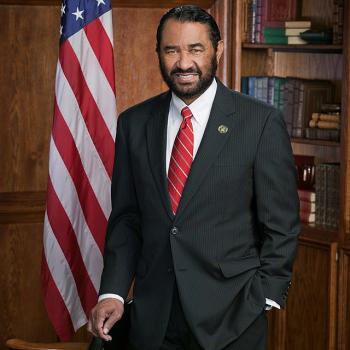Lent begins this Wednesday.
It’s difficult in our over-scheduled world to reflect. On anything. It is doubly difficult to reflect on something as unpleasant as our own sins.
However, unless the statistics and the evening news are entirely bogus, we have a lot to repent of this Lent, a lot to change.
Most of us, me included, tend to focus on the entirely personal nature of our sins that pertains only to us. We don’t often consider how our personal sins affect others. We almost never think about how our personal behavior either contributes to the common good or diminishes it.
We’ve had quite a few discussions on Public Catholic about marriage and family. A lot of this discussing has focused on the question of whether or not our society should change the legal definition of marriage. The question is, should we redefine marriage to something that does not focus on marriage’s institutional purpose of creating, nurturing and equipping future generations of people to become stable and productive adults?
I think the primary reason we have come to the point where we can seriously consider such a thing is that we have become a divorce culture. Divorce and our easy acceptance of it as a solution for almost any spousal grivance has destroyed marriage as a nest for many millions of our young people. So, destroying it absolutely through a redefinition of the law just seems like the next step for many people. We’ve abused marriage so much that we’ve forgotten what marriage is.
One of the questions I’d like all of us to ponder during this Lent is how we treat our own families. In this post, I’m going to focus on divorced parents.
Divorce does not end your obligation as a parent. It complicates it and makes it more difficult to live out, but it certainly does not end it. Your children are still your children.
I see a lot of finger-pointing between divorced spouses. He claims that she won’t let him see the kids. She tells stories of fathers who make dates to see the children who wait eagerly by the door for hours for their Daddy who never shows up. Some divorced spouses move hundreds of miles away from their children and then only see them once or twice a year.
This is going to make a lot of people angry, but I’m going to say it. If you are only seeing your kids once or twice a year, you are not functioning as a parent in their lives. You are functioning, at best, as a kindly uncle or aunt.
Parents are there. Parents put their children first, ahead of their anger and resentment toward their former spouses, and yes, their careers and their new spouses.
I know all the stories about jobs and second marriages and all the other “necessary” reasons people move far away from their children. But, to be honest, I don’t buy it. Your children should come first. I once knew a divorced dad from England who had followed his divorced wife to Oklahoma so he could be near his kids. That’s a father.
The mother who moved her children so far away from their father on the other hand … not so much. I don’t think divorced dads should move away from their kids. I also don’t think divorced moms should move the kids away from their father.
I can hear the anger now over that statement. After all, isn’t divorce about starting over?
In truth, I don’t know what divorce is. I do know what being a parent is. Among other things, being a parent means you put your kids’ needs ahead of your own. So, no, divorce is not about “starting over” and having a “new life.” You are a parent first, foremost and for life. There are no excuses for forgetting that.
If you have kids, you need to put them ahead of yourself. You need to do what it takes to be their mother or father. Your career, your desire to remarry, your “needs” are all second to that.
Too often, divorced parents use the children to punish their former spouses. Also too often, they remarry and put their new spouses and their new children ahead of their “old” kids. After all, babies are always cuter, cuddlier and simpler than your older children with their knobby knees, braces on their teeth and the emotional damage you’ve done to them with your custody fights, attacks on their mother or father and indifference to their needs.
It must seem to children of divorce like their parents stop loving them. Unfortunately, in far too many instances, this is not entirely an illusion.
Divorce is a wrecking ball we take to our lives. It is a ripping apart of that “one flesh” that marriage is. It violates the trust of family, destroys the peace and safety of home.
Divorce hurts people to the core. It inflicts wounds on them that will not heal.
Whatever harm divorce does to the adults who commit it can be raised by powers of ten for their children. Divorce wounds adults. It maims children.
I know there are many experts who will tell you that this is not true. But look at the generations of young people we are producing. They appear to be increasingly unable to form families and nurture their own young. That is a profound, civilization-destroying failure of child-rearng and family that rests on the heads of their parents.
It speaks directly to our excesses and abuses of our marriages and children. Unfortunately, we are not getting the message. Instead of repenting of our societal excesses that have led to this destruction of our homes and families, we are attempting to complete the process by redefining marriage as a social contract in which fidelity, children and stability play no part.
We want to base our understanding of marriage on things like job benefits and inheritance laws (all of which can be changed without touching marriage) rather than its essential function as a cradle for creating and raising our children. It is as if we have fallen in love with our own cultural/societal suicide.
Lent begins Wednesday. Lent is a time when we are supposed to examine our lives, repent of our sins and do penance for those sins. I’m going to suggest that you take a look at how you treat your family. For this post, I am going to focus specifically on divorced parents.
Are you doing your best to be a good parent to your children? How high are your children on your list of priorities? Do they rank somewhere below your job, your dating life, your grief/bitterness/rage over the divorce and your desire to “put it behind me” and get on with a new life?
Do you even care about what your behavior does to them? Are you concerned about the fact that you are shaping people? Have you forgotten that they are your own flesh and blood?
For today, I want to ask divorced parents to consider examining their own lives and how they can do a better job of overcoming the many deficits divorce inflicts on their ability to properly nurture, guide and shelter their children. Think of ways you can be an effective father or mother to the children you have brought into this world. Consider them, and not you.
They are, after all, your children. Nothing else you do in life matters if you don’t take care of them.












